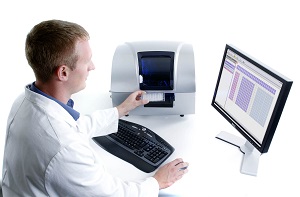A new application note published on the Malvern Panalytical website demonstrates the absence of any cross contamination when using the company’s Zetasizer APS (Auto Plate Sampler) to analyze known ‘sticky’ proteins.

The Zetasizer APS dynamic light scattering (DLS) system enables the automated measurement of multiple samples and has wide application in the rapid screening of proteins. The risk of cross-contamination is a concern to many people when considering automated analysis in a multiwell format and the experiment was designed to thoroughly test the instrument’s capabilities. The application note can be downloaded at www.malvern.com/dlsautomation.
Setup and operation of the Zetasizer APS is straightforward and its stringent cleaning protocols are designed to ensure that no cross contamination occurs. The work described in the new application note used familiar protein samples to demonstrate the lack of detectable cross-contamination. Samples included insulin, in both “monomeric” (the insulin hexamer) and “oligomeric” forms, and Abeta, the amyloid beta peptide known for its stickiness and tendency to adhere to plastic. The Abeta sample was present in two forms, fibrillar and oligomeric.
The order in which samples were loaded onto the system was chosen so as to maximize the risk of cross-contamination. The oligomeric insulin was dispensed first using a standard pipette, followed by the small and pure insulin, and then the larger polydisperse Abeta samples. Since large protein aggregates scatter much more light than small pure protein samples, if cross-contamination were to occur the polydisperse Abeta sample would be detected within the small homogenous protein sample. The results show that after running multiple tests, there was no detectable cross contamination.
The Zetasizer APS delivers the same high sensitivity, high specification DLS measurements as other systems in Malvern Panalytical’s established Zetasizer family. The automated processing of samples in multiwell plates enables the generation of high quality DLS data with no user intervention, a major benefit in maximizing productivity. The system’s highly practical data display capability allows easy retrieval of results of interest, eliminating the need to manually scan through all measurements. In addition, the Zetasizer APS plate navigator feature acts as a data mapping tool, for rapid screening of results to retrieve the information of most interest and subsequent in-depth investigation of selected data sets.
The separate temperature controls of the plate holder and the measurement cell allow the Zetasizer APS to maintain the protein samples in optimal condition until measurement. In addition, thermal trend measurements between 2°C to 90°C with 0.1°C degree precision can be defined. The plate scheduler allows the user to graphically set up size and thermal trend measurements of various samples from the same plate using a variety of different SOPs.